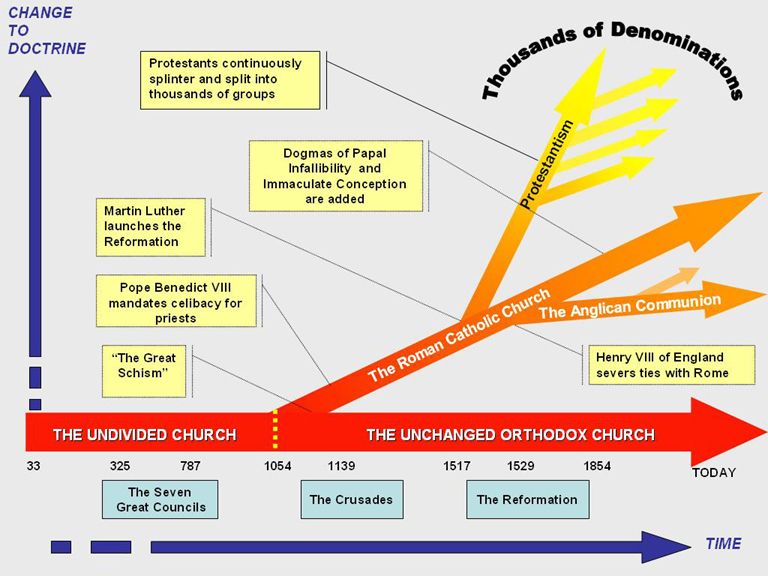
Posted on 10/31/2014 12:28:55 PM PDT by Alex Murphy
Halloween and Reformation Day have a connection to each other beyond sharing October 31 on the calendar. October 31, 1517 is the believed date Martin Luther, a Catholic monk, nailed the 95 Theses to the doors of the Wittenberg Castle church in Germany that would spark what the Reformation. The monk was confronting a number of church laws that he felt should be revisited and revised, making all people equal in the eyes of the church. These views were seen as heretical and the Monk was eventually excommunicated from the church.
Halloween, October 31, is celebrated each year by millions of people. It is a time of costumes, candy, parties and scares. The roots of Halloween can be traced to the pagans. The believed origin comes from the Celtic. Summer sacrifices to appease the Celtic god, Samhain, the lord of death and evil spirits. The pages believed that by dressing up, they could hide from the evil spirits that Samhain would send. In an effort to bring the pagans an alternative, Christians introduced All Hallows Day. November 1st was the day chosen when the church would celebrate the lives of faithful Christian saints. The night before, October 31, was then known as All Hallows’ Eve, which over time, transform into Halloween.
Before being celebrated on November 1, May 13 was when Pope Boniface IV started All Hallows’ Day or All Saints’ Day. This was the day that the pope dedicated the Pantheon in Rom in the name of the Virgin Mary. All Saints’ Day was moved to November 1 by Pope Gregory III when a chapel in the Vatican Basilica was dedicated to the honor of all saints. Later, Pope Gregory IV made the day a Churchwide observance. This move would eventually draw Halloween and Reformation closer together, although it was another 700 plus years away.
Believed to be October 31, 1517, Luther, who wanted to see the church change, become more open to all Christian people, wrote down 95 things that he wanted to open a discussion on how the Catholic Church could do them better and be all accommodating. After scribing these 95 Theses to paper, the monk nailed them to the door of the Castle Church in Wittenberg, Germany. This act started a series of events that would lead to the Protestant Reformation.
The Reformation was a rediscovery of for much of the doctrine of justification. Going against the Catholic Church’s beliefs, Luther started spreading the word that salvation by grace alone and faith alone and in Christ alone was all one needed to be saved. The Reformation was also a protest over corruption that Luther saw in the church. Seeing biblical illiteracy, superstition, and false doctrines along with other monks, priests and bishops, and even the most holy in the Catholic faith, popes were teaching doctrines that were not from the bible about the treasury of merit, purgatory, selling of indulgences, and the salvation through good deeds or works.
Luther intended his 95 Theses to open a dialog to make the church better. Not to start a revolution. However, that Halloween that he chose to nail his controversial 95 Theses to the door of the Castle Church did spark a revolution and spawned new denominations like the Episcopal church, Methodist church and, of course, the Lutheran church. There were many other denominations that took root because of Martin Luther wanting to change the viewpoint of the Catholic Church. That 1517 Halloween sparked a Protestant Reformation that changed the face of Christianity forever. Reformation Day in Protestant church’s will be celebrated tomorrow, but the actual day is October 31, Halloween day.

I don't think the Pantheon was in ROM when they rededicated it.
You can't change data in read-only memory.
This is a positively bizarre characterization of that event. The most scandalous dearth of "openness" in Christianity at the time was not within Western Christendom but the division between Catholics and Orthodox.
Luther's theology of course could do nothing but make that worse, and the poor Patriarch of Constantinople had to tell the Lutherans to stop writing him with their bizarre doctrinal ideas.
A schism is a schism is a schism is a mortal sin.
So who was is schism? Orthodox from Rome, Rome from Orthodox or both from Christianity.
So who was is schism? Orthodox from Rome, Rome from Orthodox or both from Christianity.



"What I told you was true...from a certain point of view. You're going to find that many of the truths we cling to depend greatly on our own point of view."
Thank you Obi Wan.
The Orthodox are in schism from Rome.
So that's what the Protestant revolt was about! It was about doing things better and being more open and inclusive! I never knew!
Disclaimer: Opinions posted on Free Republic are those of the individual posters and do not necessarily represent the opinion of Free Republic or its management. All materials posted herein are protected by copyright law and the exemption for fair use of copyrighted works.